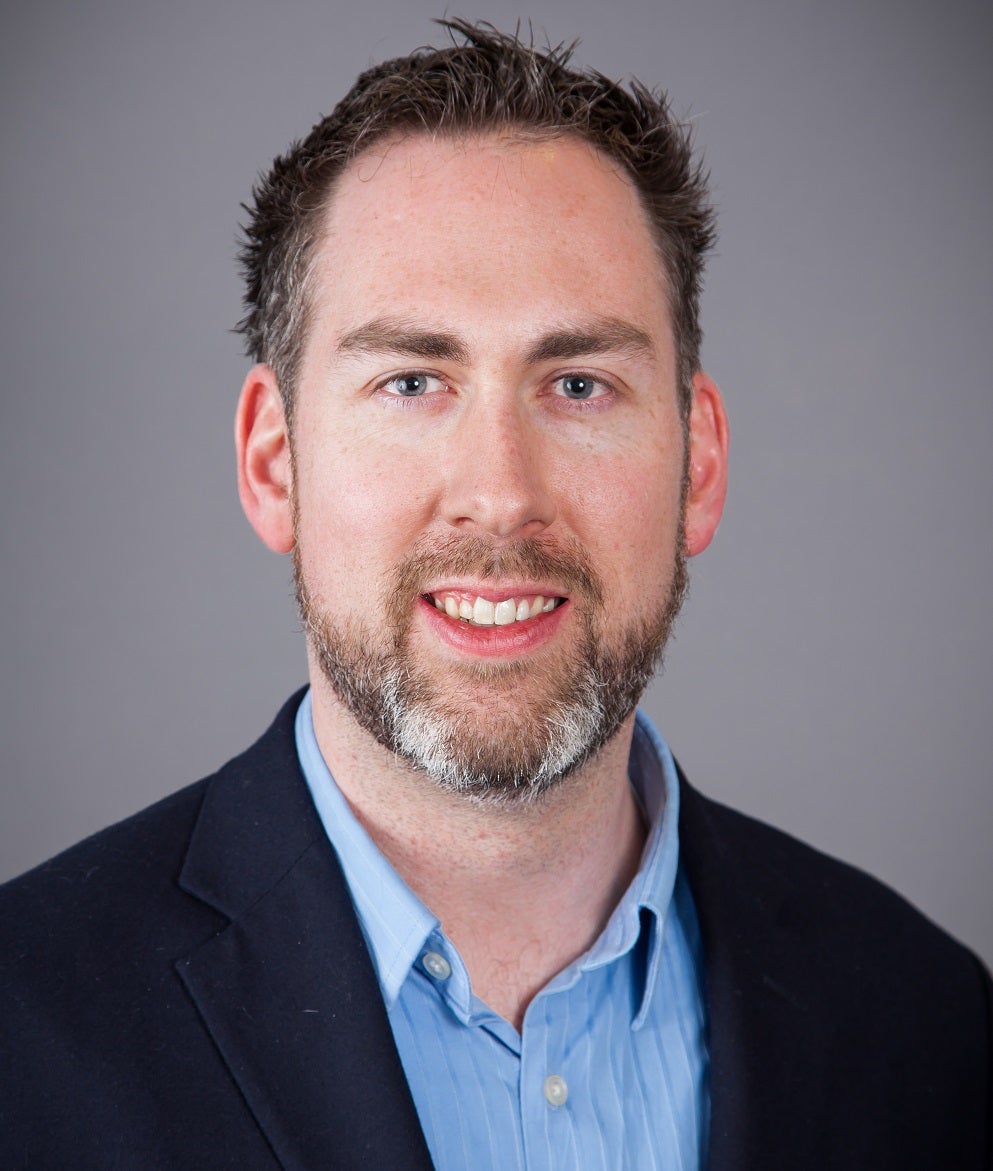A key puzzle piece fell into place today with the announcement of $1.65 million in federal funding for a joint training program involving the University of Waterloo and partners in Germany.
Support from the Natural Sciences and Engineering Research Council of Canada (NSERC) gives the green light to a nine-year initiative to train dozens of graduate students and help bring promising new two-dimensional materials out of the laboratory and into the marketplace.

Michael Pope is a chemical engineering professor.
Five years in the making, the collaboration involves experts at the University of Duisburg-Essen, RWTH Aachen University and eight engineering and chemistry professors at Waterloo in a project dubbed 2D-MATURE.
Through workshops, international exchanges and industry partnerships, the objective is to provide almost five dozen graduate students in Canada, and a similar number in Germany, with the know-how to scale up the production of 2D materials and make them commercially viable.
“We have found, I think, that perfect collaborative fit – and it’s the right time,” said Michael Pope, a chemical engineering professor who is leading the initiative for Waterloo. “We’re at the right research-versus-commercialization phase in 2D materials development.”
Go to Funding the future of 2D materials for the full story.